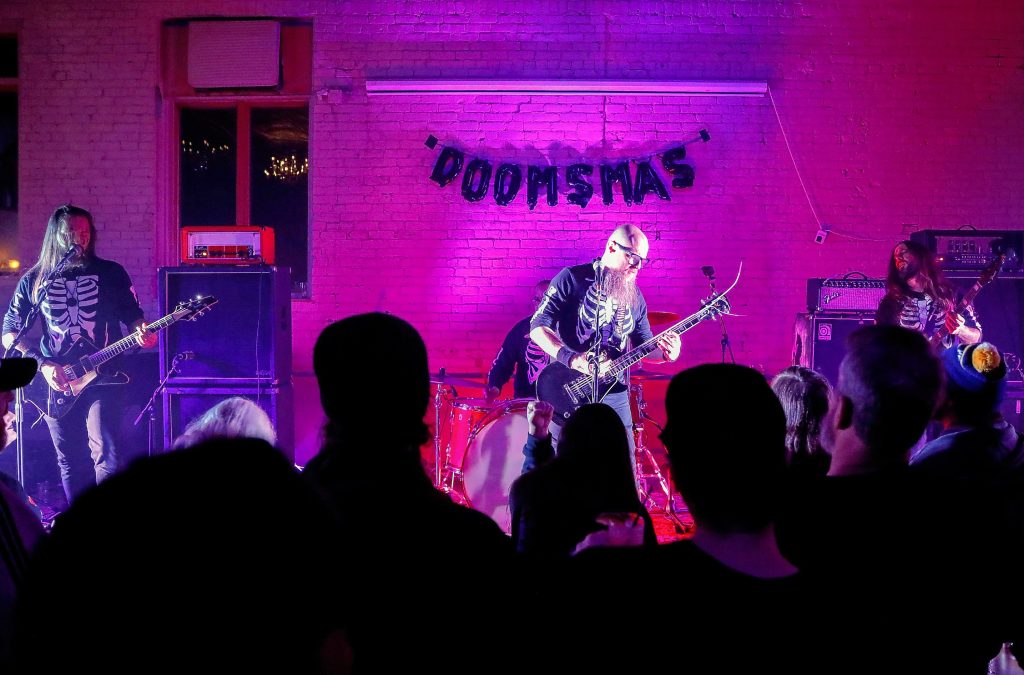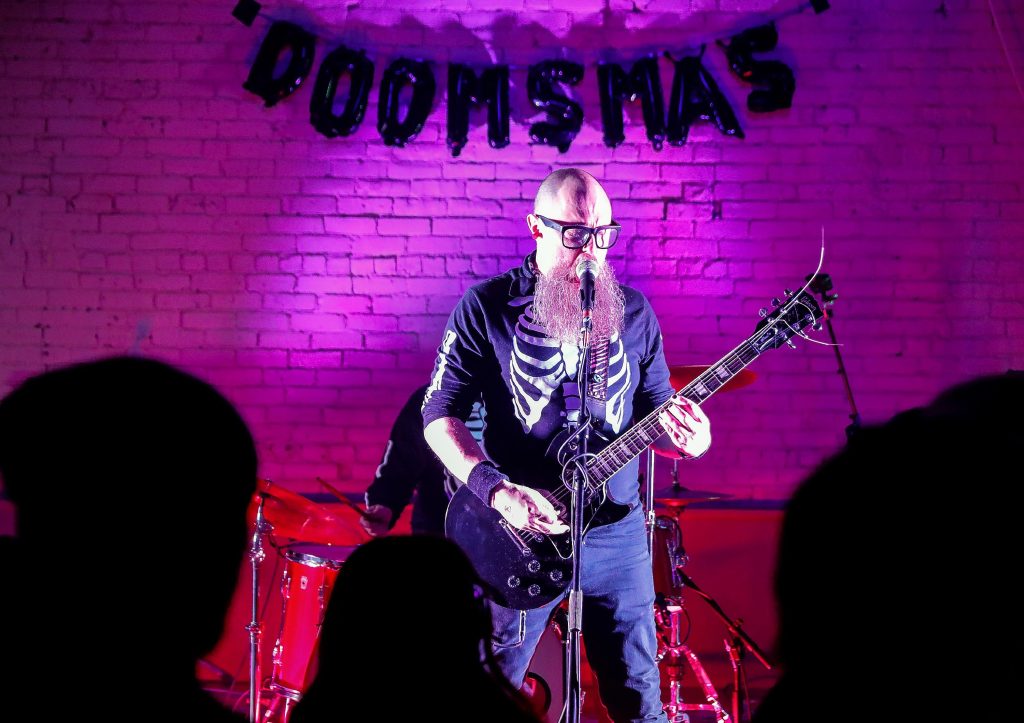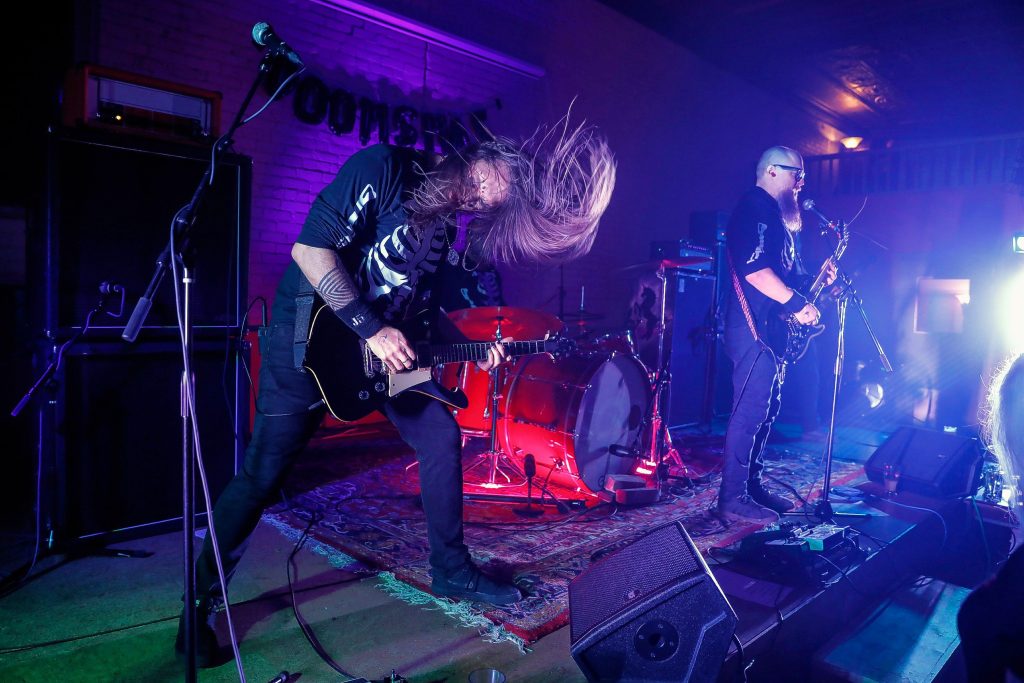It’s been just about three years since COVID made its appearance, and life as we all knew it changed its course. You still see people wearing masks outside their houses and there are more people who don’t leave the house much at all these days.
For instance, I have only ventured out in public with my father one time in the last three years. It was a quick in-and-out to Ocean State Job Lot to get a box of tea and to poke around. That’s it for the last three years.
This is the sad reality of the world being a scarier place for people who are more vulnerable to the virus.
One of the biggest side effects of COVID that I’ve witnessed and experienced is social anxiety. With the majority of the world in isolation for the duration of 2020 and longer, going back to “normal” outings has been a challenge for a lot of people, myself included.
Before the pandemic hit, I was regularly going out to hear live music. In 2018, for example, I was averaging about two to five shows a month. I was also booking a handful of shows and writing a bi-weekly column for the Advocate covering the music scene. Now I’m lucky to attend two to five shows a year. It’s not just because of money, scheduling and time — it’s mainly due to social anxiety that has worsened since COVID hit.
I feel like I’ve always had a touch of social anxiety. When I was a kid, that first day of school each year loomed over me like a dark cloud. Once I was in the building though, it tended to go away (at least mostly).
Years later, as an adult, when it came to attending a show or a movie solo, I had no problem. I knew I was going to a place that I was going to enjoy, regardless of if I knew anyone in attendance. But now, it feels different. And I’ve noticed that it’s not just me.
From a musician’s perspective
Robert Ives is a local musician, sound engineer and prominent face of the local music scene here in the Valley. He has been a musician since he was 5 years old when his mother signed him up for piano lessons. His first bands were formed when he was in high school and later on he played his first show in 1996 or 1997 at a “real nightclub” in San Diego, California. After that first gig, he hasn’t stopped performing.
“I’ve always done ‘sound’ for most of the shows I’d put together or play,” Ives said, “but didn’t officially start doing sound as a professional until around 2007 or 2008 when I accepted the weekly gig at Sierra Grille’s ‘Reanimate The Bay State’ Thursday night concert series.”
Ives was also behind the sound booth at the 13th Floor Music Lounge in Florence which hosted some jam-packed shows throughout the years.
“Pre-pando I’d mix approximately three shows per week. That’s about 11 bands per week,” he said. “At the peak of 13th Floor Music Lounge’s run I’d be mixing more than 400 bands per year.”
Not to mention performing regularly with his own band, Problem With Dragons.
“I’d play maybe 30 to 50 shows per year when Problem With Dragons got going,” Ives said. “Mostly out of town or touring type gigs.” He’d also attend a few shows here and there, but with working sound most weekends, he didn’t go to many shows outside of those he was working.
So when the pandemic hit, Ives said his livelihood was hit pretty hard. And with that, he gained some unwanted anxiety.
Problem With Dragons now play on average about 10 to 20 shows per year. As of publication, they have played two shows this year. And for now, Ives says he only attends about five shows per year.
“Post-pando, I mix maybe 10 to 20 shows per year. This year, (so far) I have mixed exactly zero shows,” he said.
His anxiety hits most when on his way to a sound engineering gig. “I get so anxious I have to drink a beer,” he said. “Dealing with musicians who have no clue after 3 years of not playing is extremely stressful.”
Even sending out emails to book a tour with his band causes him to freeze up. “I have had more anxiety lately than ever in my life,” Ives told me.
Trying to get back to it
Last year I went through so many personal changes and overcame a lot of strong shifts in my life. So this year, I want to tackle some of my own anxiety issues and further work on bettering myself and my happiness. Especially when it comes to going out to a show.
On the weekend following my birthday, I went to a show, the third local show I attended in a year. I went solo for the first time in years and told myself it was my birthday treat. “I can do it, it will be fine,” was my little mantra.
I was friendly with some of the people playing, which provided a bit of comfort going in, but the anxiety of attending — especially solo — was a little intense.
I walked into the venue and live music ensued. Within minutes, I was greeted with a friendly face and a hug, simple little things to ease that anxious feeling.
Local musician and avid showgoer Adam Slim was playing that night in his band Mothman Apparatus. Slim doesn’t struggle with that sense of social anxiety as I or others still do, but he did have a touch of anxiety at the outset of COVID, wondering if he would ever be able to perform live shows again.
“Once you started realizing — like as a musician – and seeing everything shut down, you’re just like, ‘oh my god, what is happening here, will I ever be able to play another show again,’” he said.
His anxiety was eased once he began seeing people figuring out ways to make things happen again and have more intimate shows. He played all throughout the earlier days of the pandemic, at breweries and restaurants, while people were still social distancing and keeping up with the CDC guidelines.
I spoke with my friend Brad Shanler, who confided in me about a panic attack he had at a show recently at the Palladium in Worcester. He attended the show solo to see a band he really wanted to see perform live. While he was in the crowd, he had a panic attack, the first he ever had.
He left the crowd, and then left the venue all together, without getting to see the performance.
I asked him if he thought the repercussions of the pandemic may be to blame and he said it wasn’t necessarily because of that.
Another notable name and face of the local music scene, Jay Gauvin, has also experienced a change post-COVID.
“There are most definitely some new found anxieties, concerns and worries playing live music with coming back after the bulk of the pandemic,” Gauvin said. “Things like social distancing; vaccinated/not vaccinated; hard opinions left and right causing friction between people, bands and members, fans, promoters has added stresses and conflict that were not really present or so forward in the past.”
Gauvin has been an active musician in the Valley since 1998 and has been in a handful of punk projects throughout the years. His most popular band, The Prozacs, has been together since 2001 and was also playing that night I went out.
“Events being canceled last minute due to COVID outbreak, or (out of) precaution due to a single case with a performer or within the event, adds anxiety to booking,” Gauvin continued. “Many of these things have caused fans to opt out of attending live shows as well as some bands and performers.”
On this particular night I went out, there wasn’t the normal Prozacs-sized crowd I’m used to seeing. There were spaces left between couples, and you could see more of the floor than at a show three or four years earlier in the same venue, watching the same band.
“At this point, it feels that sometimes you can forget that things have changed,” Gauvin said. “But it’s really constantly looming as you think twice about maybe giving a hug.”





